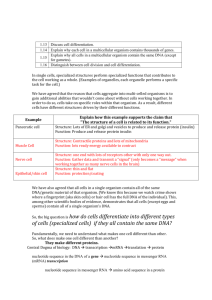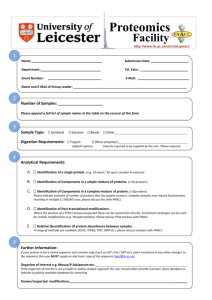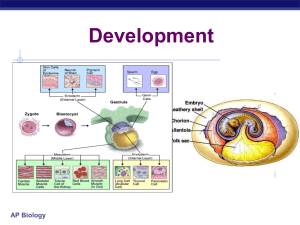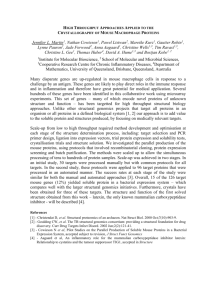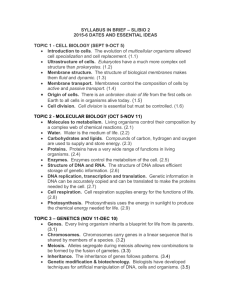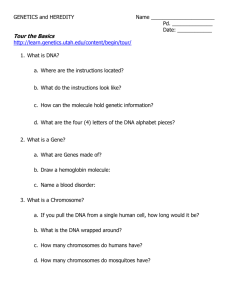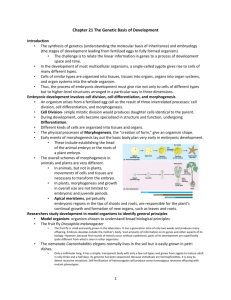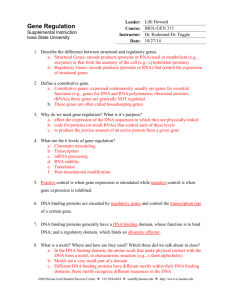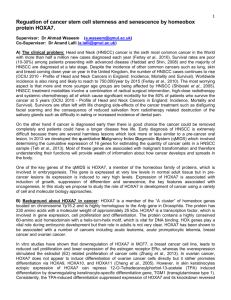Sample answers to Questions on Differentiation
advertisement
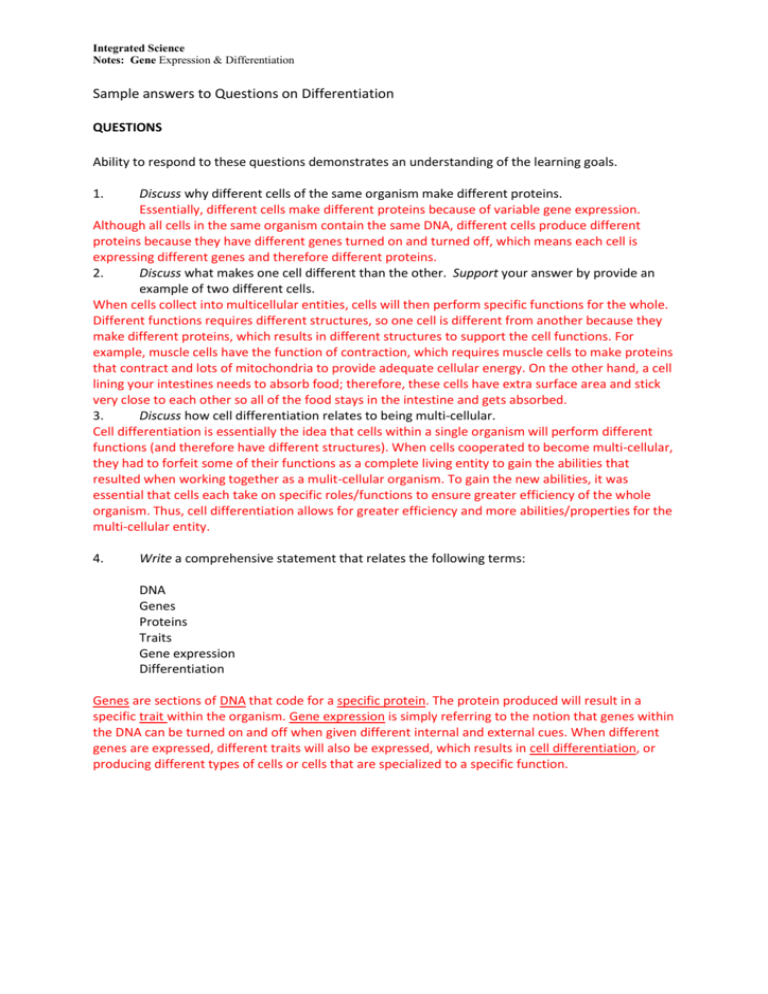
Integrated Science Notes: Gene Expression & Differentiation Sample answers to Questions on Differentiation QUESTIONS Ability to respond to these questions demonstrates an understanding of the learning goals. 1. Discuss why different cells of the same organism make different proteins. Essentially, different cells make different proteins because of variable gene expression. Although all cells in the same organism contain the same DNA, different cells produce different proteins because they have different genes turned on and turned off, which means each cell is expressing different genes and therefore different proteins. 2. Discuss what makes one cell different than the other. Support your answer by provide an example of two different cells. When cells collect into multicellular entities, cells will then perform specific functions for the whole. Different functions requires different structures, so one cell is different from another because they make different proteins, which results in different structures to support the cell functions. For example, muscle cells have the function of contraction, which requires muscle cells to make proteins that contract and lots of mitochondria to provide adequate cellular energy. On the other hand, a cell lining your intestines needs to absorb food; therefore, these cells have extra surface area and stick very close to each other so all of the food stays in the intestine and gets absorbed. 3. Discuss how cell differentiation relates to being multi-cellular. Cell differentiation is essentially the idea that cells within a single organism will perform different functions (and therefore have different structures). When cells cooperated to become multi-cellular, they had to forfeit some of their functions as a complete living entity to gain the abilities that resulted when working together as a mulit-cellular organism. To gain the new abilities, it was essential that cells each take on specific roles/functions to ensure greater efficiency of the whole organism. Thus, cell differentiation allows for greater efficiency and more abilities/properties for the multi-cellular entity. 4. Write a comprehensive statement that relates the following terms: DNA Genes Proteins Traits Gene expression Differentiation Genes are sections of DNA that code for a specific protein. The protein produced will result in a specific trait within the organism. Gene expression is simply referring to the notion that genes within the DNA can be turned on and off when given different internal and external cues. When different genes are expressed, different traits will also be expressed, which results in cell differentiation, or producing different types of cells or cells that are specialized to a specific function.
